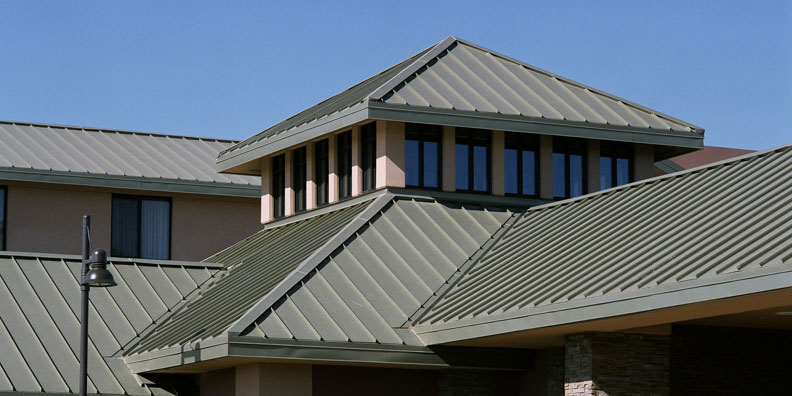When it comes to roofing systems, metal roofs have gained significant popularity due to their durability, longevity, and aesthetic appeal. However, one common question that homeowners often ponder is whether a metal roof requires gutters. In this article, we will delve into the importance of gutters for metal roofs, discuss the benefits they offer, and consider some factors to keep in mind when making this decision.

The Purpose of Gutters
Gutters play a crucial role in a roofing system, regardless of the material used. Their primary purpose is to collect and channel rainwater away from the roof and foundation of a building. By doing so, they prevent water damage, such as leaks, moisture buildup, and erosion, which can compromise the structural integrity of the property.
For homeowners considering a metal roof, the question arises: Do metal roofs need gutters? The answer to this question depends on various factors, including the climate, roof design, and personal preferences. While metal roofs are highly resistant to water damage, the absence of gutters can still lead to potential issues that may require attention.
Benefits of Gutters for Metal Roofs
While metal roofs are known for their durability and ability to shed water effectively, installing gutters can enhance their performance and provide several benefits.
Firstly, gutters help in managing water runoff efficiently. Metal roofs have a high water-shedding capacity, but during heavy rain, the volume of water can exceed the roof’s capacity to drain it away quickly. Gutters collect the excess water and direct it away from the roof, ensuring that it doesn’t accumulate or overflow, which can lead to water damage over time.
Secondly, gutters protect the foundation of the house. Without gutters, rainwater from the metal roof can pour directly onto the ground surrounding the building, causing soil erosion and compromising the stability of the foundation. By installing gutters, the water can be directed away from the foundation, minimizing the risk of structural damage.
Furthermore, gutters help to prevent moisture-related issues. While metal roofs are highly resistant to moisture damage, prolonged exposure to water can still result in problems such as mold and mildew growth, which can affect the integrity of the roof and the indoor air quality. Gutters ensure that water is efficiently channeled away from the roof, reducing the chances of moisture-related issues.
Factors to Consider
Although gutters offer several benefits for metal roofs, there are some factors to consider before making a decision.
Firstly, the climate in your area plays a significant role. If you live in a region with low rainfall or a dry climate, the need for gutters may be less critical as the water runoff from the metal roof might be minimal. However, in areas with heavy rainfall or frequent storms, gutters become more important to manage the excess water effectively.
Secondly, consider the roof’s design and slope. Certain metal roofs incorporate integrated water management systems that eliminate the requirement for conventional gutters. These systems allow water to flow off the roof into a specialized drainage system, reducing the reliance on external gutters.
Lastly, personal preferences and aesthetics should be taken into account. While gutters provide functional benefits, some homeowners prefer the clean and sleek look of a metal roof without visible gutters. In such instances, it is possible to explore alternative water management solutions, such as rain chains or underground drainage systems.
Conclusion:
In summary, metal roofs are durable and shed water effectively, while gutter installation enhances benefits and safeguards property integrity. When deciding on gutter installation for a metal roof, consider climate, roof design, and personal preferences. Ultimately, consulting with a roofing professional can provide valuable insights and guidance tailored to your specific needs.



Leave a Reply